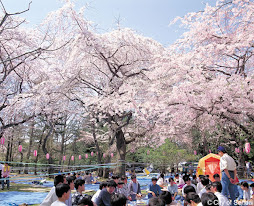Lesson 1 - the verb "to be" (être) (informal and formal versions).
In French, there are a formal "you" and in informal version ("vous" et "tu", right?). In Japanese this idea of "formality" and "informality" is wider, extended, more complicated, strict and used. You'd better to always remember to use the formal versions, unless you are talking to someone you DO REALLY know well a long while... (that's not our case...)
DA = c'est le verbe "être" en japonais (affirmative informal version)
DESU = c'est aussi le verbe "être" en japonais (affirmative formal version)
"Da" is pronounced like "dá" and "desu" like "déss" (you must pronounce the "s", but not the "u" and this always happens when "su" is the last syllable of a word in Japanese) en la pronunciation française.
This verb always come at the end of a sentence (unlike português, français and English... rather similar to Latin).
Watashi da. (pronunciation française: "ouatachí dá")
Watashi desu. (pronunciation française: "outachí déss")
It's me. C'est moi.
In Japanese we use "particles" (small and short auxiliary words) after words in a sentence to mark their function and grammatical class (subject, direct object, indirect object, adjective, adverb and so on). Thus, we have to say "wa" after a subject already known, that kind of subject the people who listens to us is already aware of. This already known or manifested subject is called "TOPIC" and after a particle "wa" there is always a TOPIC. Please bear this tight in your mind.
Watashi wa Furansujin desu. I am French. Je suis français(e).
("ouatachí oua furansudjín déss").
These "n" after vowels is not nasalized just as it is in French and in Portuguese. We use the tongue to mark these "n"; don't say them through the nose. And in Japanese, "n" is an independent syllable. "Dj" is written only "j" in Japanese orthography and is pronounced like English "j" in "John", "jam". The "u" is not like in French "u" and neither French "ou"; stretch your lips just as you were going to pronounce and "I", but rather please say the French "ou". Here you are the unrounded sound of the Japanese "u".
Watashi wa Miguel desu. I am Miguel.
Watashi wa Marlon da. Je m'appelle Marlon / Je suis Marlon.
Watashi wa Miguel. "Je suis Miguel / Je m'appelle Miguel"
Miguel desu. "Je suis Miguel / Je m'appelle Miguel"
Marlon. "Je suis Marlon / Je m'appelle Marlon"
Watashi wa furansujin desu. JE SUIS FRANÇAIS.
Furanshujin desu. I AM FRENCH.
Furansujin da. JE SUIS FRANÇAIS.
Furansujin. I AM FRENCH.
In informal speech, in everyday conversation, "da" (the informal version of "desu", le verbe "être" japonaise) is usually omitted. And it is preferred not to put "da" all the time at the end of sentences. Even the pronoun "watashi" is normally ommitted (just as in Portuguese, we ommit all the time the pronoun "eu" [éou] that means "je" in French).
PRONOUNS
Watashi I / JE [ouatachí]
Kimi YOU / TU (INFORMAL) [kimí]
Anata YOU / VOUS (FORMAL) [anatá]
Kare HE / IL [káré] (trilled "r", not in the throat! like "tt" in American English "leTTer", "preTTy", "maTTer", "leTTuce")
Kanojo SHE / ELLE [kanodjó] (closed "O")
Watashitachi WE / NOUS [ouatachitátchi] "ch" in like the English "ch" or "tch" in "teaCHer" or "waTCHing"
Kimitachi YOU ALL / VOUS (INFORMAL PLURAL) [kimitátchi]
Anatagata YOU ALL / VOUS (FORMAL PLURAL) [anatagatá]
Karera THEY / ILS [káréra]
Kanojotachi THEY / ELLES [kanodjotátchi]
Watashi wa furansujin desu.
Anata wa furansujin desu.
Kare wa Miguel desu.
Kanojo wa Marie desu.
Watashitachi wa furansujin desu.
Anatagata wa furansujin desu.
Karera wa furansujin desu.
Kanojotachi wa furansujin desu.
Kimitachi wa furansujin desu.
Did you notice we use "desu" for eveybody? I don't have to conjugate the verb just as in English, French and Portuguese... Thanks God :-D !
Did you notice as well that we don't to use a plural suffix for the noun (substantif) "furansujin"? Only the pronouns go into plural. "Furansujin" means "a French man", "a French woman", "French men" and "French women". But if you REALLY have to tell the sex of the person, there is a way in Japanese to explain if this "Furansujin" is a male or a female (or one or a group).
(but this is not important now).
"Anata" is a formal "you" just "vous" in French, but we'd better say the last name (or the name if we don't know the last name) of the person we are talking to plus the suffix -san. It sounds we are talking about somebody else, but this is used even when speaking with someone who is in front of us!
Uriagli-san wa furansujin desu.
Miguel-san wa furansujin.
This always has to come after a person's name or last name (unless you are saying your own name; it's not correct to use "-san" for yourself.)
In lesson two, you will learn about questions. How to ask you someone is "French", for example. How to "yes" or "no" and how to change "da / desu" into negative. And how to say "I am ALSO French". "She is French AS WELL".
Marlon muebeitoa yu ajue beisie.
Let's learn a foreign language!
quinta-feira, 2 de abril de 2009
Assinar:
Postar comentários (Atom)














Um comentário:
[ ... ] link is being shared on Twitter right now. @zenx, an influential author, said RT @1ndus: Xtreme [ ... ]
Postar um comentário